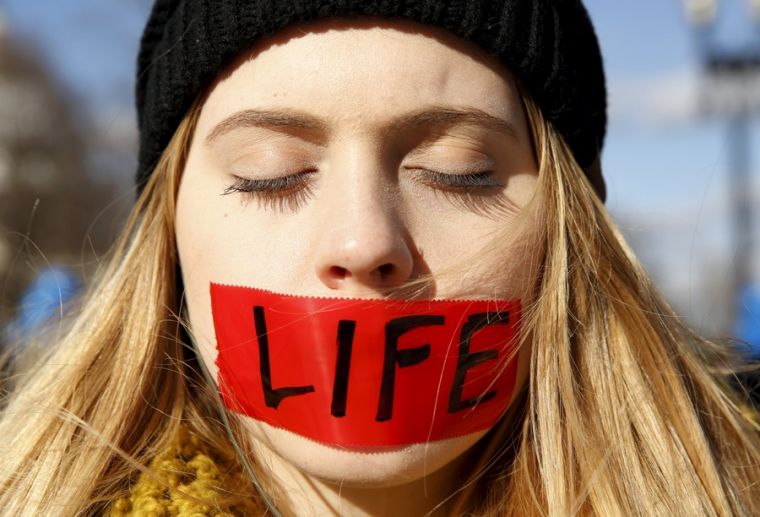U.S. court blocks state law banning abortion of foetuses with Down syndrome

A U.S. District Court in Indiana has issued a preliminary injunction to stop the enforcement of a new state law that prohibits women from getting abortion because of the foetus's sex, race, colour, national origin, ancestry, or disability such as Down syndrome.
Judge Tanya Walton Pratt blocked the implementation of House Enrolled Act (HEA) 1337, or the Dignity for the Unborn Law, on Thursday, one day before it was set to go in effect on Friday, July 1.
The lawsuit was filed by Planned Parenthood of Indiana and Kentucky (PPINK) last April after Indiana Gov. Mike Pence signed the law in March.
"The United States Supreme Court has stated in categorical terms that a state may not prohibit any woman from making the ultimate decision to terminate her pregnancy before viability," the judge said, adding that the court will follow previous U.S. Supreme Court decisions including Roe v. Wade.
In her ruling, Pratt also blocked HEA 1337's requirement that women must be informed of the prohibition on abortion on specific reasons and that the foetal tissue should be disposed of the same as human remains.
"The lack of authority supporting the State's position likely stems from the fact that it is contrary to the core legal rights on which a woman's right to choose to terminate her pregnancy prior to viability are predicated," wrote Pratt.
In a statement, Pence's spokesperson Kara Brooks said the governor was disappointed with the decision but "remains steadfast in his support for the unborn, especially those with disabilities."
"The Governor will continue to stand for the sanctity of human life in all stages, for the compassionate and safe treatment of women faced with an enormously difficult decision, and for the rights of citizens to determine appropriate medical safety standards and procedures through their elected representatives," she said.
Indiana became the second U.S. state after North Dakota to ban abortions based on disability, LifeSiteNews reports
The American Civil Liberties Union of Indiana, which filed the lawsuit on behalf of Planned Parenthood, praised the injunction.
"This law attempted to do exactly what Supreme Court precedent said could not be done: invade a woman's privacy rights by preventing her from deciding whether to obtain a pre-viability abortion. We are extremely pleased that Indiana's attempt to violate women's basic rights has been thwarted," said ACLU of Indiana Legal Director Ken Falk.
Pro-life group Indiana Right to Life blasted the court's decision.
"Today a federal judge denied the civil rights of unborn children, then proceeded to equate aborted children to common medical waste by blocking dignified disposal," said Mike Fichter, president and CEO of Indiana Right to Life. "This ruling is an appalling human rights injustice and we urge the state to appeal."











